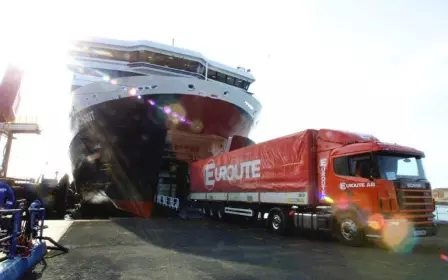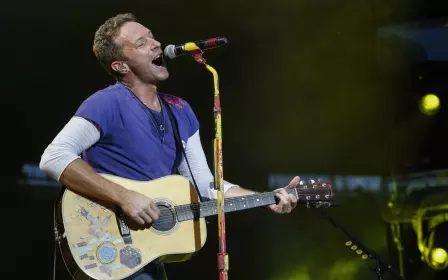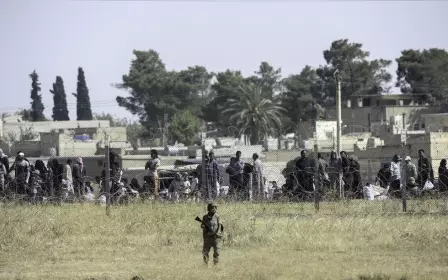Several aid groups reject Italy's new rules for migrant rescues
Five aid groups that operate migrant rescue ships in the Mediterranean refused to sign up to the Italian government's code of conduct on Monday, the interior ministry said, but three others backed the new rules.
Charity boats have become increasingly important in rescue operations, picking up more than a third of all migrants brought ashore so far this year against less than one percent in 2014, according to the Italian coastguard.
Italy fears the groups are facilitating people-smuggling from North Africa and encouraging migrants to make the perilous passage to Europe, and it proposed a code containing around a dozen points for the charities.
Those who refused to sign the document had put themselves "outside the organised system of sea rescues, with all the concrete consequences that can have", the ministry said.
Italy had previously threatened to shut its ports to NGOs that did not sign up, but an interior ministry source said in reality those groups would face more checks from Italian authorities.
Doctors Without Borders (MSF), which has taken part in many of the rescues of some 95,000 migrants brought to Italy this year, attended a meeting at the ministry but refused to sign the code.
MSF objected most strongly to a requirement that aid boats must take migrants to a safe port themselves, rather than transferring people to other vessels, which allows smaller boats to stay in the area for further rescues.
"Our vessels are often overwhelmed by the high number of [migrant] boats... and life and death at sea is a question of minutes," MSF Italy's director Gabriele Eminente wrote in a letter to Interior Minister Marco Minniti.
"The code of conduct puts at risk this fragile equation of collaboration between different boats," Eminente continued, adding that MSF still wanted to work with the ministry to improve sea rescues.
But Save the Children gave its backing, saying it already complied with most of the rules and would monitor constantly to be sure that applying them did not obstruct their work.
"We would not have signed if even one single point would have compromised our effectiveness. This is not the case, not one single point of the code will hinder our activities," Save the Children Italy director Valerio Neri said after the meeting.
The Malta-based Migrant Offshore Aid Station (MOAS) and Spanish group Proactiva Open Arms also agreed to the conditions, but Germany's Sea-Watch, Sea-Eye and Jugend Rettet, and France's SOS Mediterranee abstained.
"We would only sign if the new rules made our work more efficient and increased the security of our volunteers," Jugend Rettet spokesman Titus Molkenbur told journalists at the close of the meeting in Rome.
The new rules, which have been given a green light by Brussels, forbid NGOs from sailing into Libyan waters unless lives are at risk, or communicating with smugglers - including using lights that could attract traffickers.
MSF, SOS Mediterranee and Jugend Rettet also called for clarity on the rules and took issue with a clause in the code which would oblige groups to accept police officers on board.
"For us the most controversial point... was the commitment to help the Italian police with their investigations and possibly take armed police officers on board," Molkenbur said.
"That is antithetical to the humanitarian principles of neutrality that we adhere to, and we cannot be seen as being part of the conflict."
New MEE newsletter: Jerusalem Dispatch
Sign up to get the latest insights and analysis on Israel-Palestine, alongside Turkey Unpacked and other MEE newsletters
Middle East Eye delivers independent and unrivalled coverage and analysis of the Middle East, North Africa and beyond. To learn more about republishing this content and the associated fees, please fill out this form. More about MEE can be found here.




